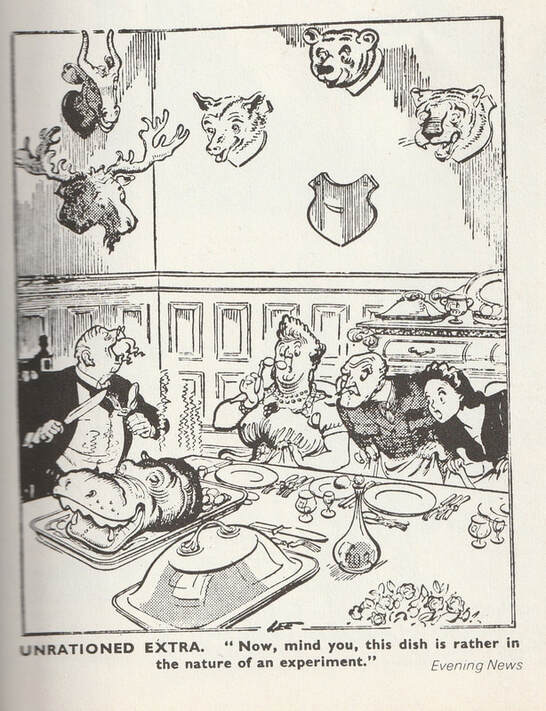|
I recently finished reading a fascinating and unique book entitled Thinks He’s A Bird, by Australian author Brian Campbell. It is the story of a young Aussie named Keith Watson who joins the R.A.F. in 1942 and eventually ends up as the captain of a Lancaster bomber in the Pathfinder Force. Watson kept extensive journals and sent numerous letters, all of which survived and were combed through by the author to create a remarkable narrative about a young man at war, far from home. Watson’s eye for detail and Campbell’s skilful weaving of the story make for fascinating reading. One detail of wartime life that Keith Watson often comments on is food, an interest we all share. Second World War rationing in Britain is a fascinating subject – as I was researching my Dad’s time in Bomber Command I often wondered, “what was he eating and drinking...?”
Wartime rationing in Britain meant everyone had less to work with. Brewers had to make due with less sugar, so wartime beer was lower in alcohol than in peacetime – but it was never rationed. Lord Wooton, Churchill’s Food Minister, said “..if we are to maintain at least some semblance of normal life, beer must be produced...”. Hear, hear! In the words of Mark Twain, beer is proof God loves us and wants us to be happy. During the Battle of Britain the country’s beer brewers even had a hard time getting hops, as it was hazardous for the pickers to work in the fields of Kent with the battles raging overhead. Anti-aircraft shrapnel and expended bullets from Spitfires and ME-109’s would have been raining down like lethal hail that summer of 1940. Coupon ration books were issued to all, to control consumption (but of course the black market thrived) and everything from candy to lard had a weekly allowance. Everyone scrimped and saved and made due with what was available. The Ministry of Food published a weekly edition of “Food Facts” which gave tips like “Never waste the peel and cores of your apples. Boil them with a little sugar in water and you’ll have a delicious and very health-giving drink”, and “Try young nasturtium leaves instead of jam at tea-time. It makes a change; it’s better for you and saves the country’s sugar”. The wartime cartoon reproduced above sums up the attitude of the times very well. People were allotted one egg a week, and many made do with powdered eggs, which were coming from the U.S.A. by the ton. The boys of Bomber Command were lucky in this regard – it became tradition for them to be served fresh eggs, bacon and chips on days when they were flying an operation. Meals on the airbases were spartan. Bob McWhirter, the Coffey crew’s rear gunner, told me in 2015 that he remembered a lot of mutton and cold, clammy noodles were on offer. After he and the rest of the crew reached officer rank the food improved a bit, served with a “bit more imagination”, although there was still only so much the station cooks could do with the limited ingredients they had available. However disappointing a meal may have been at a Bomber Command base during the Second World War, the “brylcreem boys” (as the Army nicknamed them) had it better than British and Canadian troops in Normandy after D-Day. The soldiers there lived on “compo rations” for the most part. In his book Caen: Anvil of Victory, author Alexander McKee relates the story of a hungry British soldier who turns down an offer of a hot meal during the thick of the fighting – the meal presented was “P.V.” (canned pork and veggie stew), a dish “so vile” even “a dog” wouldn’t eat it.
0 Comments
Your comment will be posted after it is approved.
Leave a Reply. |
AuthorClint L. Coffey is the author of The Job To Be Done, available now through FriesenPress. Check back soon for new blog posts Archives
July 2024
Categories |


 RSS Feed
RSS Feed
